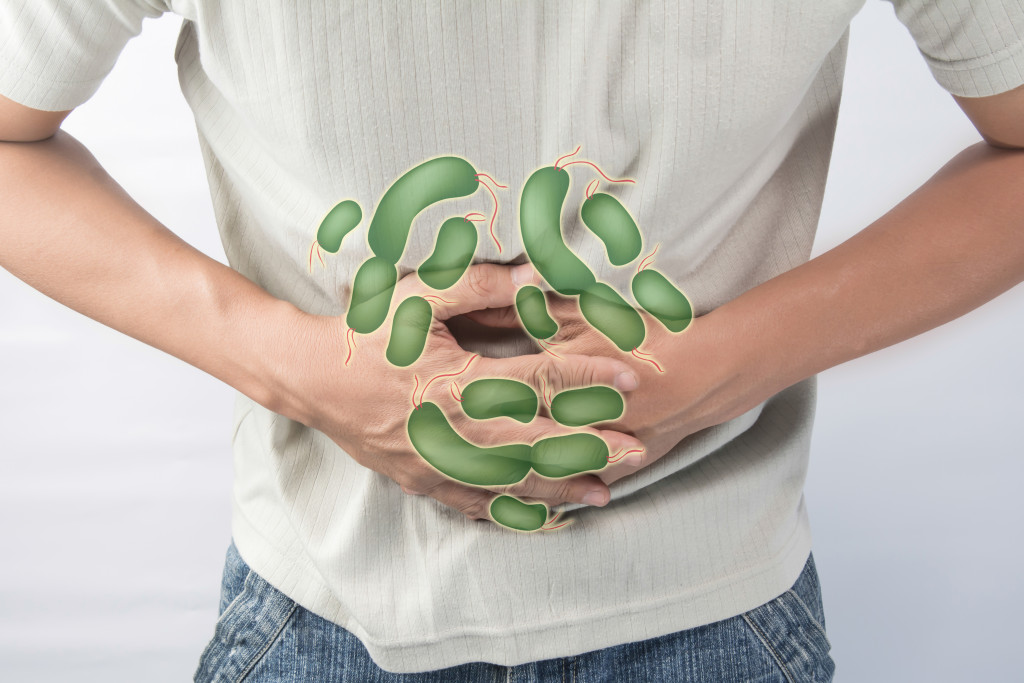Disclaimer: The Lifestyle Elf. This site provides fashion and lifestyle content for informational purposes only.
Did you know that your digestive system is responsible for more than just digesting food? In fact, it’s responsible for keeping your entire body healthy. Not only does it break down food and absorb nutrients, but it also eliminates waste and toxins from your body.
That’s why it’s so important to keep your digestive system healthy. And luckily, there are a few simple things you can do to make sure it stays in tip-top shape. But first, let’s take a closer look at why having a healthy digestive system is so important.
Why Is a Healthy Digestive System Important?
There are a few key reasons why having a healthy digestive system is essential for your overall health:
1. It helps you absorb nutrients from food. If your digestive system isn’t functioning properly, you may not be able to fully absorb the nutrients from the food you eat. This can lead to deficiencies in essential vitamins and minerals.
2. It eliminates toxins and waste from your body. Your digestive system helps filter out toxins and waste products from your blood. If it’s not working properly, these toxins can build up in your body and lead to health problems.
3. It supports a healthy immune system. A healthy digestive system is the key to a healthy immune system. The good bacteria in your gut help to fight off infection and disease.
4. It helps you maintain a healthy weight. Your digestive system plays a role in regulating appetite and metabolism. If it’s not functioning properly, you may be more likely to gain weight or have difficulty losing weight.
Now that we know why a healthy digestive system is so important let’s look at some of the best ways to keep it functioning properly.
Best Ways to Keep Your Digestive System Healthy
Eat a Balanced Diet
The first step to maintaining a healthy digestive system is to eat a balanced diet. This means eating a variety of foods from all the different food groups, including fruits, vegetables, whole grains, lean protein, and low-fat dairy. Limiting your intake of saturated fats, sugars, and processed foods is also important.
You don’t have to eliminate these foods from your diet completely, but you should eat them in moderation. When it comes to fat, for example, choose healthy fats like olive oil and avocados instead of saturated fats like butter and bacon.
Get Plenty of Fiber
Fiber is an essential nutrient for keeping your digestive system healthy. It helps add bulk to your stool and keeps things moving along smoothly. It also helps to prevent constipation and other digestive issues.
The best way to get fiber is from food, so include plenty of high-fiber foods in your diet, such as fruits, vegetables, whole grains, and legumes. You can also take a fiber supplement if you need a little extra help.
Stay Hydrated
Drinking plenty of fluids helps keep things moving smoothly and prevents constipation. Water is the best fluid for staying hydrated, but other beverages like unsweetened tea and coffee can also be helpful. Just be sure to limit your intake of sugary drinks, as they can contribute to digestive issues like diarrhea and gas.
If you’re having trouble getting enough fluids, try carrying a water bottle with you throughout the day or set reminders on your phone to drink up. You can also add some flavor to your water by infusing it with fruits, herbs, or vegetables.
Exercise Regularly
Exercise is important for overall health, but it can also help keep your digestive system healthy. That’s because it helps to stimulate the movement of food through your digestive tract and prevents constipation.

Aim for 30 minutes of moderate-intensity exercise most days of the week. Walking, biking, swimming, and gardening are all great options. Not only will you benefit your digestive system, but you’ll also improve your heart health, mental well being, and more.
Get Regular Checkups
If you have any digestive issues, it’s important to see your doctor, so they can rule out any underlying medical conditions. Getting regular checkups is also a good way to catch potential problems early on.
For example, get an endoscopy every five years starting at age 50. This simple test can detect problems like inflammation, ulcers, and cancer in the digestive tract. It can also help your doctor identify any potential problems, so they can be treated before they become serious.
Manage Stress
Stress can wreak havoc on your entire body, including your digestive system. When you’re stressed, your body produces more of the hormone cortisol, which can lead to digestive issues like constipation, diarrhea, and irritable bowel syndrome.
That’s why it’s important to find ways to manage stress. Some good stress-relievers include exercise, meditation, and spending time with friends and family. If you’re having trouble managing stress on your own, talk to your doctor or mental health professional.
So there you have it, six of the best ways to keep your digestive system healthy. Now that you know how to keep your digestive system healthy put these tips into practice and enjoy good gut health for years to come!

